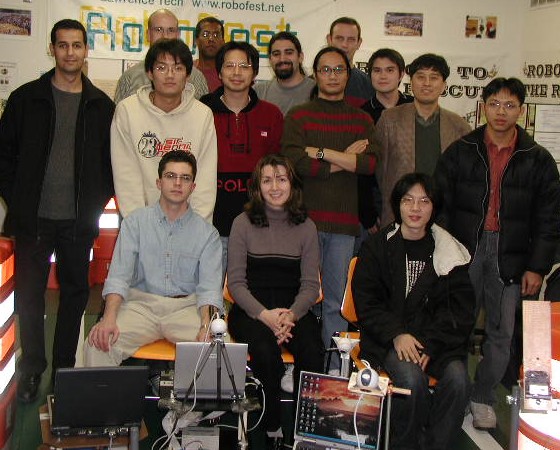Fall 2003, MCS 5503 Intelligent Systems

Thursday 5:45-8:25pm
SyllabusClass Flyer (PDF 155K) | Teaching Philosophies



This course will be fun because we try to explore the above interesting questions by using
computer science technologies.
This course introduces methods and techniques to build systems with computational intelligence.
Class topics includes:
fundamental issues in Intelligent Systems and Artificial Intelligence,
search and optimization methods,
introduction to machine learning, knowledge and reasoning methods,
Artificial Neural Nets,
Evolutionary Computation, Fuzzy Logic Control,
and reactive machines, state machines, and autonomous robotics.
Robot vision will be also covered.
Students will gain practical experience by applying those concepts learned to the development of
practical
intelligent systems such as intelligent web applications, data and www mining,
intelligent business applications,
design optimization,
timetabling systems, bioinformatics (symbol sequence recognizer), evolutionary art,
pervasive computing,
robot simulator, evolutionary robotics, automomous mobile robots, unmanned systems and
among others.
Prerequisites: Knowledge of data structures and (C++ or Java)